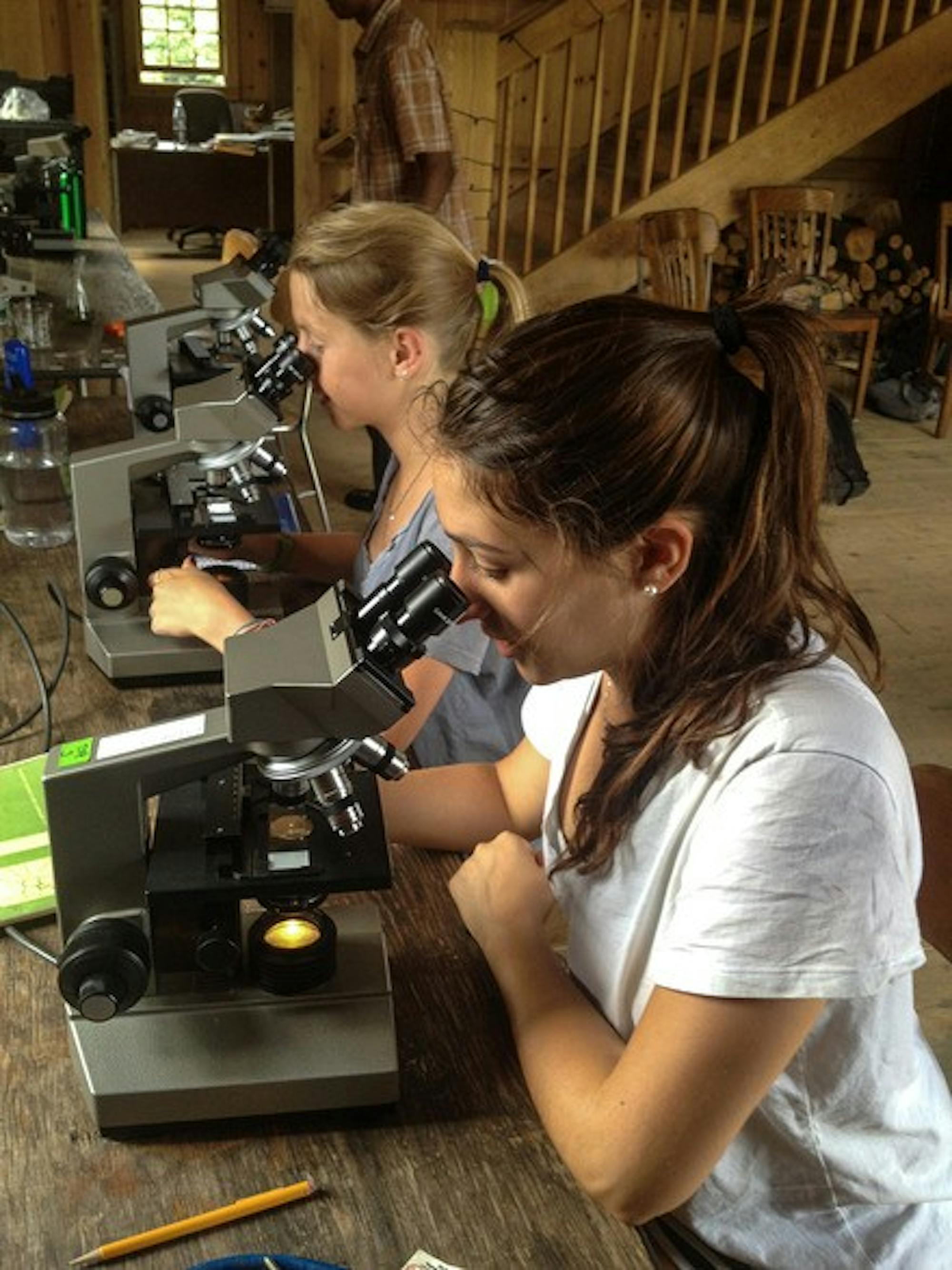Undergraduate Dean June Chu said she found that students discover new departments by taking courses that fulfil distributive requirements, which she said was a "great way for students to step out of their comfort zones."
"Students may come in with an idea of what they want to do but may not have experienced that class at a college level," Chu said.
Of the Class of 2012, 48 percent of students graduated with a single major, 30 percent with a major and minor and 17 percent with a double major.
Flexibility in electing a major depends on the department. Students majoring in the social sciences and humanities departments can explore more courses during their freshman and sophomore years, while engineering majors are required to complete specific classes earlier in their academic paths.
The engineering sciences department requires that students take two engineering courses as well as mathematics and physics prerequisites by the end of their sophomore year.
Beyond specific requirements, engineering majors can take additional courses based on pure interest. Half of the courses students elect in the engineering major are within that department, engineering sciences department chair Erland Schulson said. About 25 percent of engineering students in the Class of 2013 modified their majors.
"They are competent on more fronts than just one," he said. "After four years of study, you will still be balancing engineering sciences with social studies and humanities."
There are nine ways to modify the engineering sciences major four with other science fields and five outside the field.
The history major, the fourth largest with 100 graduates each year, allows students to pursue careers in a variety of different fields.
"There is a very small number of students who go on to graduate studies in history," department chair Walter Simons said.
Department size and structure can shape students' experiences in their major. With approximately 15 majors in each class, the physics department enables faculty to provide students with individualized attention and increased research opportunities, physics and astronomy department chair James LaBelle said.
"We have a special room in the basement for physics majors," he said. "We call it the cave because it has rocks all around it, and there are usually physics majors in there hanging out."
All students pursuing the pre-medical track must take two courses in the physics department. Yobiel Kelati '15 arrived at Dartmouth planning to pursue the pre-medical track as a biology major.
"I started taking my pre-med classes and realized that I absolutely hated them," Kelati said.
He found that his courses no longer reflected his interests. After teaching English in Honduras over spring break during his sophomore year, Kelati decided he wanted to work with people directly.
"I realized that education might be the best idea, and I'm a lot more excited for it than I was for anything else I was attempting to do here," Kelati said.
Now a psychology major, Kelati will begin working toward his education minor this fall and is applying for the Teacher Education Program, a public school teaching certification obtained through Dartmouth.
Coming to Dartmouth, Blake Osborn '15 knew she was interested in the engineering sciences department. While in high school, she enjoyed physics, biology and chemistry, but knew she did not wish to take the pre-medical route.Osborn visited the Thayer School of Engineering during Dimensions weekend, which helped her make her decision.
"On my tour of Thayer, the students and professors were really friendly and willing to collaborate," she said.
Osborn said she chose to attend Dartmouth because the engineering department offered her the flexibility of a liberal arts education. Unlike Dartmouth, other engineering schools had predetermined course plans, she said.
Osborn, who will be completing her arts and engineering degrees in four years, said that "it is not impossible, it just takes a bit of planning."
While most students complete the engineering degree in five years, Osborn sought advice from the department early to determine how to graduate a year in advance.
"I spoke with professor Van Citters who worked with me to make sure everything worked out with my D-Plan," Osborn said, referring to the Thayer professor who specializes in biomedical engineering.
Osborn balanced her schedule by taking two courses in her major and a distributive requirement course each term.
"My schedule has been much more manageable than I thought," she said.




